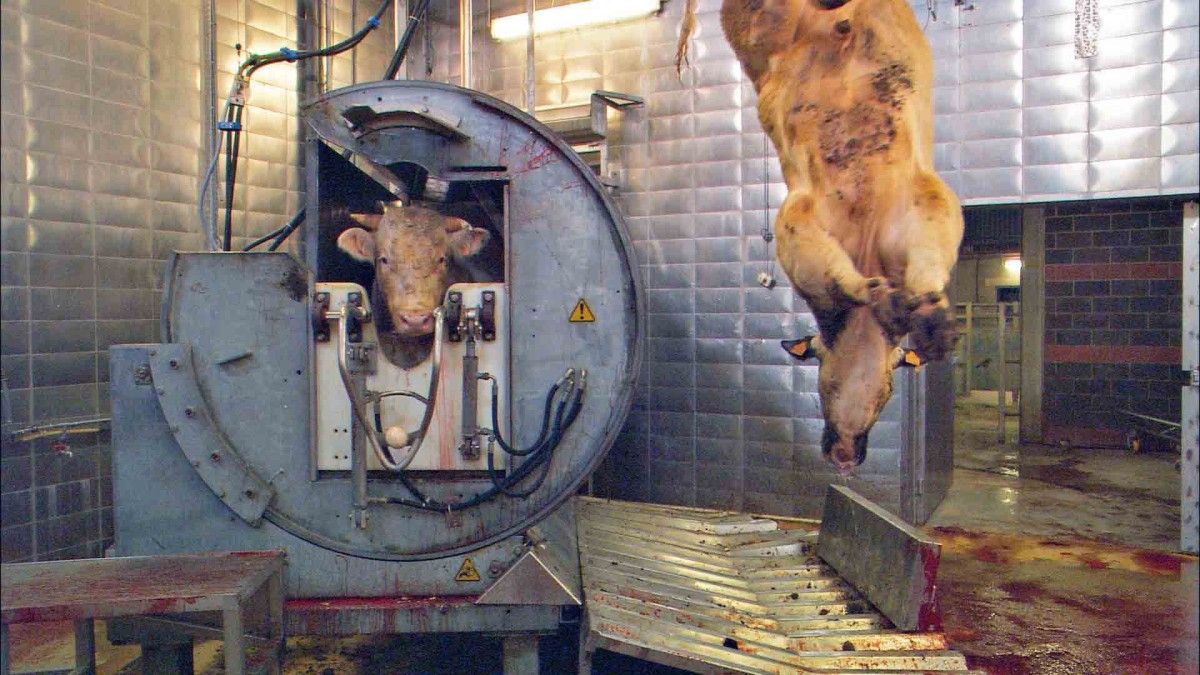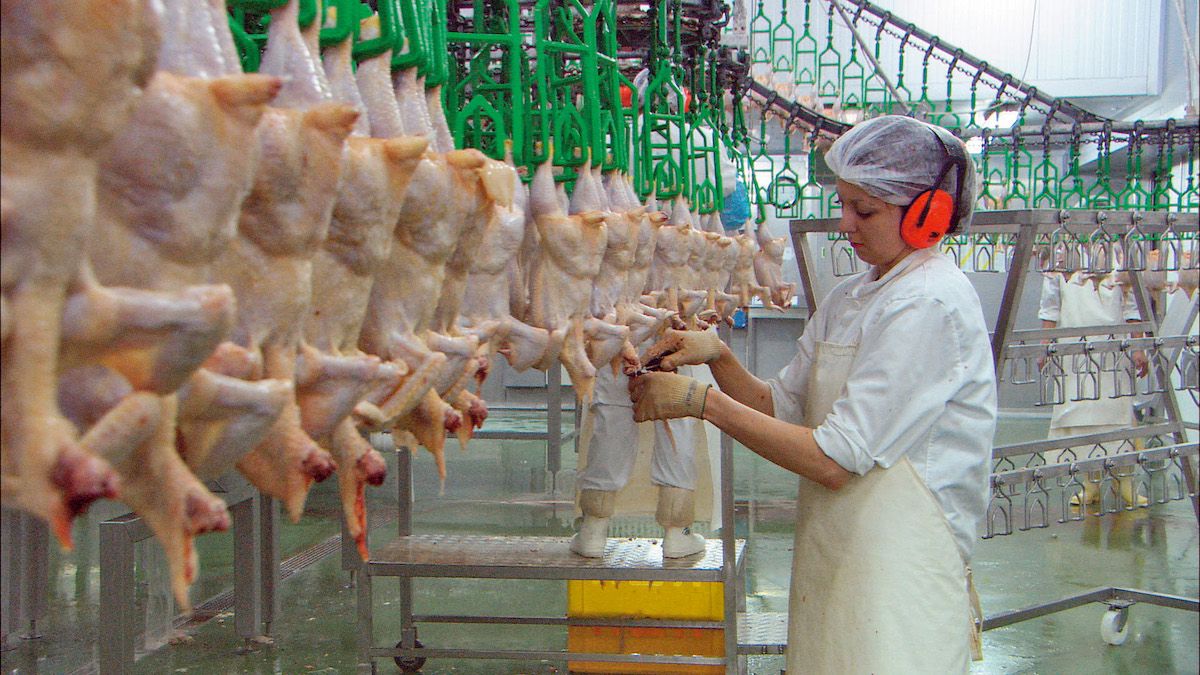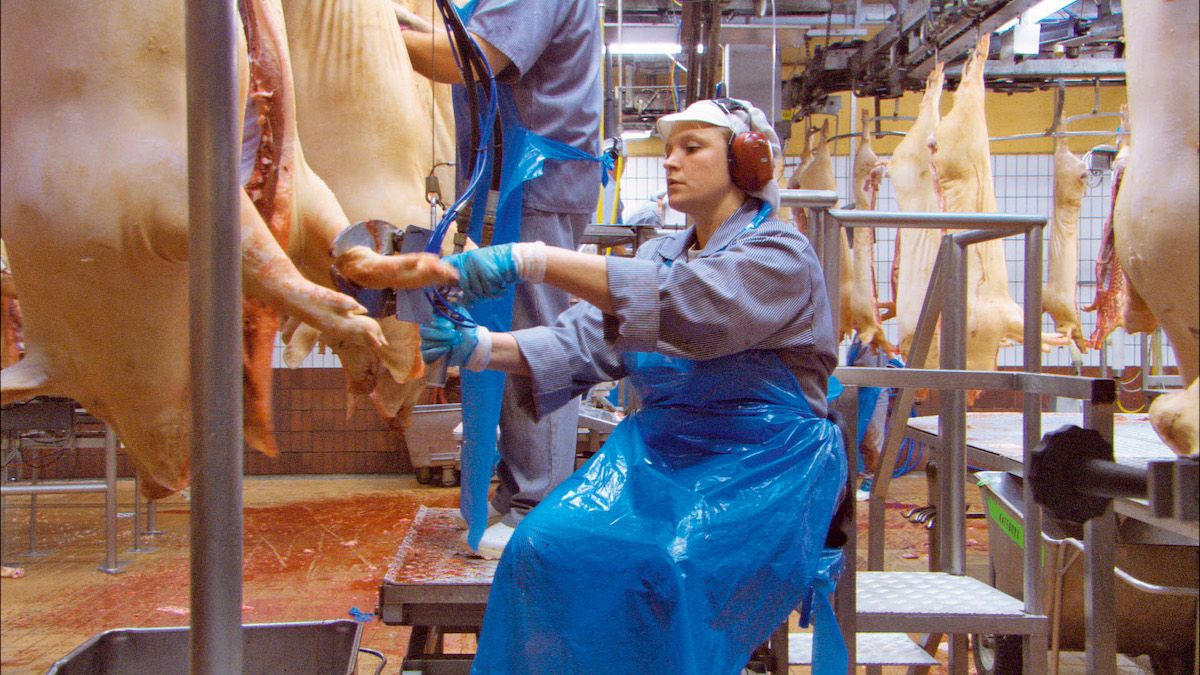


Our daily meat
"Our Daily Bread" is a brilliant documentary about the food industry directed by the Austrian filmmaker Nikolaus Geyrhalter. The film is entirely without commentary. All you hear are the sounds recorded during the filming. It is hard to imagine what a voiceover could have added. The images make any commentary redundant.
"Our Daily Bread" was shot around Europe between October 2003 and 2005. It alternates between countries and produce. By the end every part of the food chain, from chicken breeding and salt mining to artificial insemination, green houses and slaughter houses, have passed by. Nikolaus Geyrhalter consistently uses long wide angle shots. All the action takes place within a frame. This allows you to take in what you see and to observe details that would be lost with a more narrative approach that guides the viewer.
By the end of the film I was completely numb. Nikolaus Geyrhalter does not judge. He only shows. Therein lies the power of the film. It is easy to criticize the industrialization and mechanization of our food production. Yes, man has become alienated from nature. But this is the only way to feed millions. Large farms are also far more economical than the kind of small acres still abundant in, say, India. I also think hygiene is a good thing and a quick killing is to be preferred over more traditional methods. On the other hand, watching the monotony of the work involved is distressing, and as to the excesses of the livestock industry, well, let's not get into that.
Once, when I had a small garden, I tried to grow my own tomatoes. But when they began to bear fruit they became top heavy. I now know that tomato plants in green houses are suspended from the roof, the roots contained in a tiny bed of soil. There's no way these plants could grow in the wild.
Go see this film, buy the dvd, or watch it online, if you want to know how olives are harvested and how cows are inseminated, give birth, are milked and are being killed. Then again, perhaps ignorance is bliss.